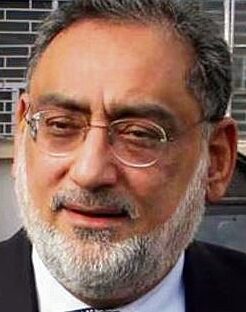NC must recalibrate in new bipolar order
THE National Conference has secured not just an electoral victory but also a political one. For the party, the run-up to the elections was primarily about electoral salvation and government formation.
But with the monopolistic mandate that it has been given by the Valley, along with a strong showing in the Pir Panchal region of Jammu, the party will need to recalibrate its politics, if not reinvent it.
Its foundational ideology of “accession on the basis of autonomy” was dismantled in 2019 when Article 370 was abrogated.
The many and multiple changes — constitutional, legislative and administrative — have altered the warp and weft of the politics in Jammu and Kashmir. Over the past five years, every policy change has been perceived in the context of a threat to identity and a need for self-assertion.
Given this context, the political leadership of the National Conference has to be transformative, seeking to articulate and pursue an alternative way forward for the state. This will, of course, include a social, economic and political vision as also strategies of navigating it.
In the Valley, this election served a major purpose, which was to give vent to feelings of rage and resentment. As in the parliamentary elections, this time too the vote was seen as replacing the stone. Significantly in Jammu, votes were cast in direct contrast to the Kashmir vote. This is akin to a prisoner’s dilemma; a paradox that illustrates how two rational individuals acting in their own self-interest can lead to a sub-optimal outcome.
These elections have resulted in a massive political consolidation in Jammu and Kashmir, with almost all the political start-ups and Independents being decimated. All the smaller parties, proxies or no proxies, have been wiped out.
The Peoples’ Democratic Party, which had declared itself to be the kingmaker rather prematurely, has been reduced to a rubble.
The Congress has ensured that it stands on the periphery of irrelevance in the state. Where it could have easily won 10 to 12 seats in Jammu, it has managed to win just one, giving the BJP its highest ever tally of seats.
The net result is that the new political order in J&K, post the elections, is fundamentally bipolar, with the National Conference on the one end and the BJP on the other.
Though the National Conference has swept the Valley, it has not managed to increase its vote share the way in which the BJP has done in Jammu and the Valley.
The bipolar political landscape could have been seen as positive development, except that it largely overlaps the regional and religious divide.
While the National Conference, has, post the “ghar wapsi” of its rebels, got a handful of seats from Jammu and the regional minority community, the BJP has dominated the Jammu plains and got a presence in the Chenab region.
There is no denying the fact that these elections have communalised the context of politics in Kashmir.
As such, the mandate that has been given, while decisive, can become difficult and even divisive, depending on how the BJP-ruled Centre decides to play its politics in this sensitive state.
Even as Jammu and Kashmir must reclaim its position as a fully empowered sub-national government, statehood and the legislative competence of the newly elected Assembly, what is important at this juncture is to recognise and redress the apprehensions, anxieties and aspirations of the people.
Post August 5, 2019, saw a phase of desperation, leading to despair. As such, first, the National Conference government must give the people of Kashmir a voice and articulate the existential anxiety they have felt over the past five years.
Second, end the “invisibilisation” of Kashmiris and reclaim space in an institutionalised forum, the legislative Assembly, no matter how disempowered. The process of rebuilding the social capital has to be started.
Third, engage with the people so as to be able to negotiate with the Centre for a new social compact with the people of Jammu and Kashmir.
But before that, it has also to be about the compact of the government with the people of Jammu and Kashmir. While the electoral verdict is unambiguously one of Jammu versus Kashmir, the National Conference has to make sure it is within the framework of Jammu and Kashmir.
It is not only about politics. A lot of these developments also emerge from the neo-liberal market policies that have been pursued rather recklessly since 2019. They have been based on the optics and perceptions outside of the state, rather than what is required for and by the regional economy.
These economic policies have created a socially and sectorally disarticulated regional economy, with developmental distress, soaring levels of unemployment, trade and commerce imperatives and challenges.
At the same time, it must not be underestimated that an increasing number of Kashmiris, who, though not supportive of the abrogation, are appreciative of the post-abrogation environment of certainty in their quotidian lives. There are no hartals, no bandhs, not even a call for a boycott. No curfews either.
With the kind of mandate that it has been given, the National Conference would be better off negotiating the future rather than bargaining for the past position. The possibility of new terms of engagement which are more meaningful and relevant to the current time should be explored. A zeitgeist engagement.
The antediluvian approach of status quo ante puts Kashmir, optically, more than substantively, at the centre of a geo-political world and a national political scenario that doesn’t exist anymore.
Instead, today, India is battling for the foundational aspects of the nation. Kashmir can become an important element, if not the centrepiece, in the emerging counter-narrative to the BJP’s seemingly dominant one.
Is it not better and more meaningful to be creative about a roadmap for the future rather than renegotiate the past, even assuming that it can be done?









